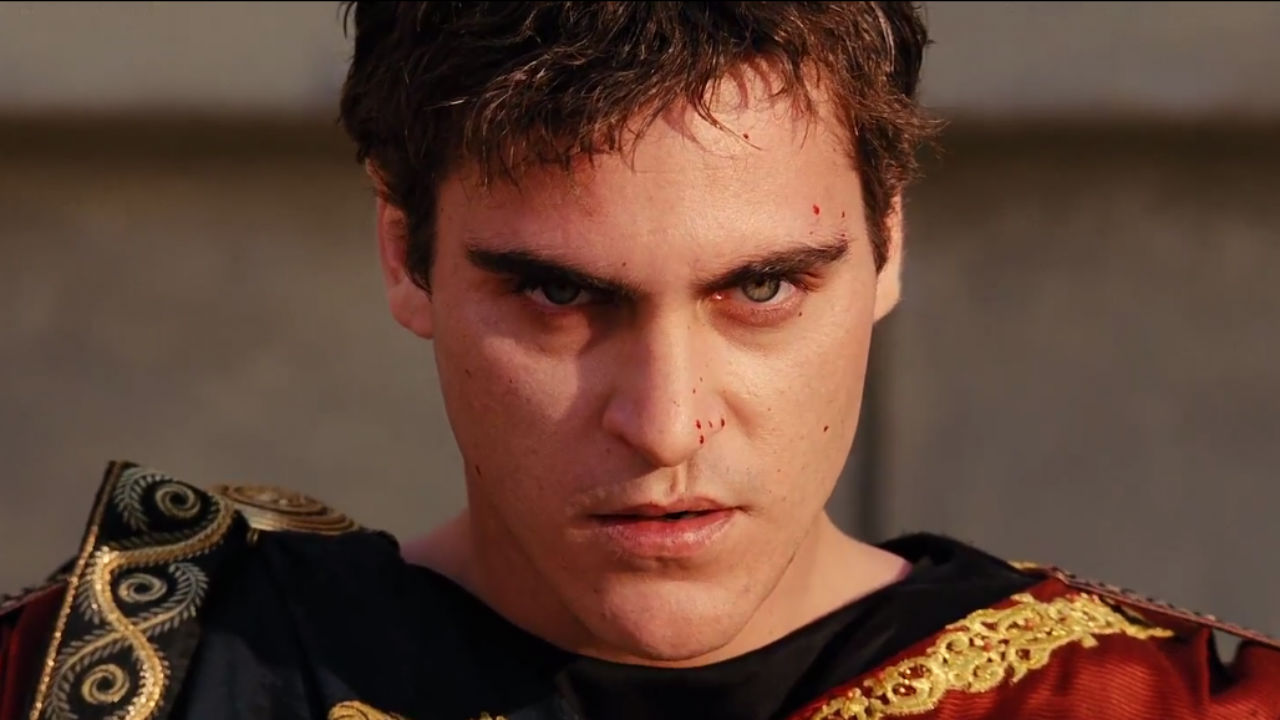
Music is an essential part of how we experience movies; it shapes their tone and atmosphere, provides emotional context for scenes, and gets at the core of the director’s intentions in a visceral way. And the very best film scores are simply great pieces of art unto themselves, music that you can listen to by itself like any other great album.
However, aside from some superlative exceptions like John Williams’ work in “Star Wars,” most filmgoers barely notice the score – which some people consider to be a good thing, since the apparent consensus among certain circles is that film music should call as little attention to itself as possible.
So it’s truly incredible that someone like Hans Zimmer has become such a staple of pop culture, just as much of a celebrity auteur as any of his most notorious collaborators like Christopher Nolan and Ridley Scott – and with just as many fans to boot. That’s due entirely to a phenomenal body of work that’s as distinguished as it is varied – and it’s not a stretch to say that his brand is reliable that the name Zimmer is a draw for moviegoers everywhere.
And if that sounds hyperbolic, consider this: how many film composers can say they have sold out tours across Europe and was a headliner at Coachella? The guy is a bonafide rock star.
15. Crimson Tide (1995)
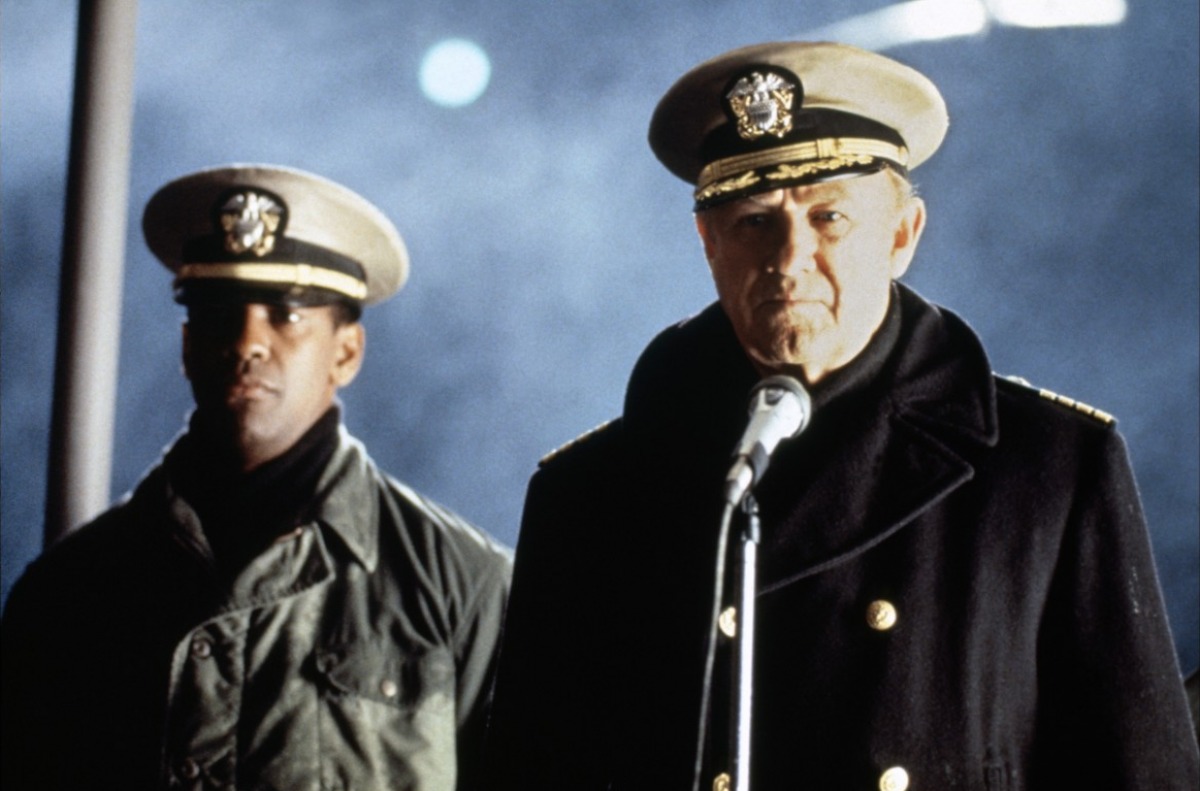
There is no other composer in Hollywood who, in the last 20 years, has done more to define the soundscape of action cinema than Hans Zimmer. But that wasn’t the case right out of the gate: he spent most of his early career, in the ‘80s, creating upbeat music for rom-coms and prestige feel-good dramas, like “Driving Miss Daisy” and “Rain Man.” The beginning of his reign as cinema’s foremost king of musical bombast only started in the mid-90s, with two back-to-back triumphs.
The first was his glorious score for Tony Scott’s “Crimson Tide,” perhaps the earliest example of Zimmer’s philosophy of merging orchestral melodies with modern sounds. The synthesizer-heavy score smartly avoids most of the cliches composers fall back on when writing music for military-related stories: there are no marching drums or military brass instruments here. Instead, Zimmer crafts an appropriately grandiose and heroic score, full of personality and memorable themes, thanks to his expert mixing of more classical instrumentalizations with choirs and synthesizers.
Zimmer’s music in “Crimson Tide” earned him a Grammy, and the composer also counts it as one of his personal favorites of his own work.
14. The Rock (1996)
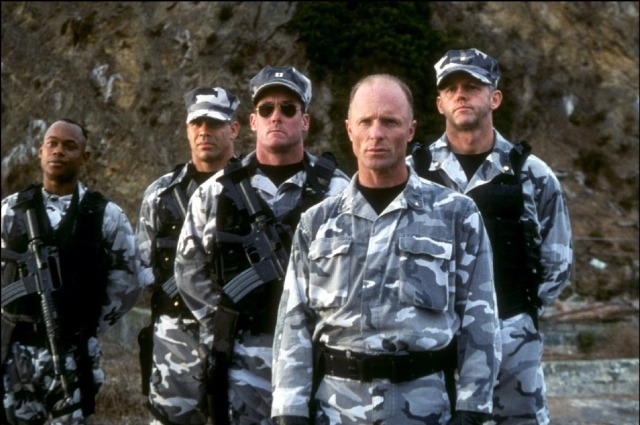
Zimmer’s work in “Crimson Tide” clearly impressed his bosses, since the very next year Don Simpson and Jerry Bruckheimer drafted him once more for their new big blockbuster: “The Rock.”
Like with Tony Scott, Michael Bay’s maximalist style of filmmaking begs for music that can keep up with the overwhelming nature of his images, and nobody is better suited for that than Zimmer. For this movie, he teamed up with Nick Glennie-Smith (the guy loves a partnership, as you’ll see again in this list) to create one of his classically Zimmer-esque sonic assaults: a symphony of brass grandeur mixed with contemporary guitar strings that prioritize rhythm and pulse over melody – something that marries so well with action scenes that it basically set the tone for blockbuster scoring from then on.
13. True Romance (1993)
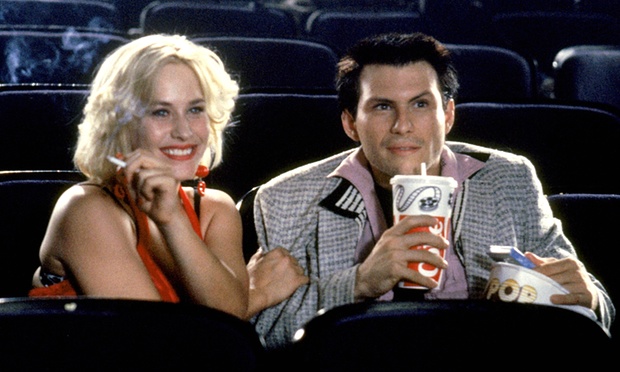
Of course, Zimmer is not *all* bombast – in a career as long and vast as his, that, as of the writing of this list, spans 38 years and 217 projects, the composer has naturally morphed into many different musical styles for varied genres of film. One of his most unsung talents is his gift for romantic themes – something clear in the composer’s surprisingly incredible work in romantic comedies (the rich score for “The Holiday” being the best example of that).
And Zimmer in romantic mode doesn’t get more iconic than “True Romance.” The gentle and soulful theme of the movie (titled “You’re So Cool”) evokes an aura of innocence that gets right at the essence of the characters – who, in spite living in a horribly violent world and often committing greats acts of violence themselves, are fundamentally just two kids in love wanting nothing more than to spend the rest of their lives together.
This is another essential quality of Zimmer’s work that is important to recognise when discussing him: the ability he has to highlight, musically, a movie’s themes and atmosphere.
12. The Thin Red Line (1998)
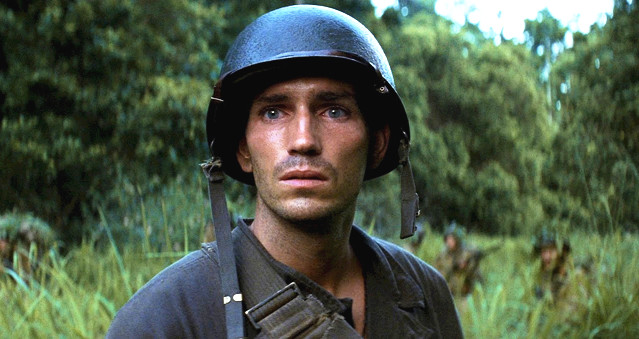
For a composer, working with Terrence Malick can be a nightmare: the director’s approach to editing, with his endless tinkering, makes it really difficult for the score to find a definitive place. The late great James Horner was forced to rewrite all of his music for “The New World” several times for each new cut Malick presented, only to see (or hear) most of his material scrapped in the final version (something he later described as the most disappointing experience of his career).
It’s a miracle, then, that Zimmer did so well with the filmmaker – not that he wasn’t subjected to Malick’s grueling process, since the composer also created several hours of music and many different themes that were ultimately discarded. Still, he was luckier than Horner and the finished movie presents a lot of his music, reflecting the best of both him and Malick. The score for “The Thin Red Line” is at times quietly melancholic, upliftingly humane (making great use of chorus, as in the track “God Yu Tekem Laef Blong Mi”) and methodically tension-building (best represented by the track “Journey To The Line,” which Zimmer fans will recognise as a precursor to “Time” from “Inception”).
11. Blade Runner 2049 (2017)
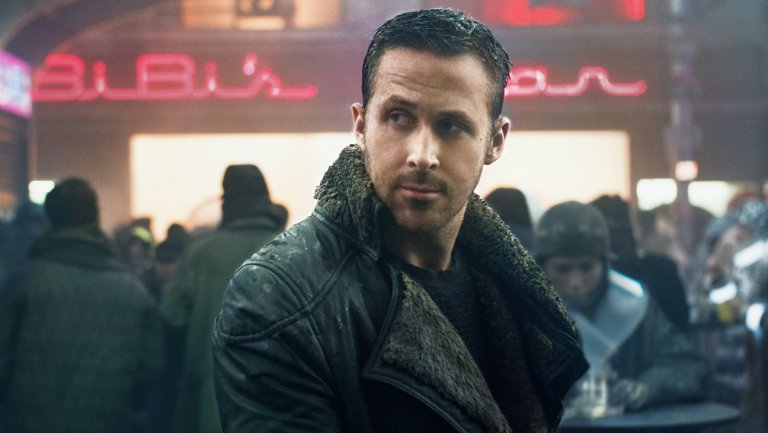
Zimmer has cited Vangelis’ music for the original “Blade Runner” as one of his top three favorite movie scores of all time. One can only imagine, then, the mix of dread and excitement he felt when Dennis Villeneuve asked him to score his sequel to the 1982 classic – here was simultaneously a chance to homage one of his heroes, but also face the ever-present danger of falling short of that genius.
It’s such a daunting task that Villeneuve’s usual composer, the late Jóhann Jóhannsson (a huge talent in his own right) completed an entire score that was rejected – the reason for which Zimmer was brought in the last minute, mere months away from the movie’s release, to turn in music that could stand up against Vangelis’ towering legacy. Needless to say, he pulled it off: with help from one of his pupils, Benjamin Wallfisch, Zimmer managed to create a score that melodically refers to the original while also finding its own experimental groove (like the use of what appears to be motorcycle sounds in the track “Flight To The LAPD,” or the unnerving chanting in “Wallace”), making it not only a worthy follow-up but also an excellent piece by itself.
10. The Last Samurai (2003)
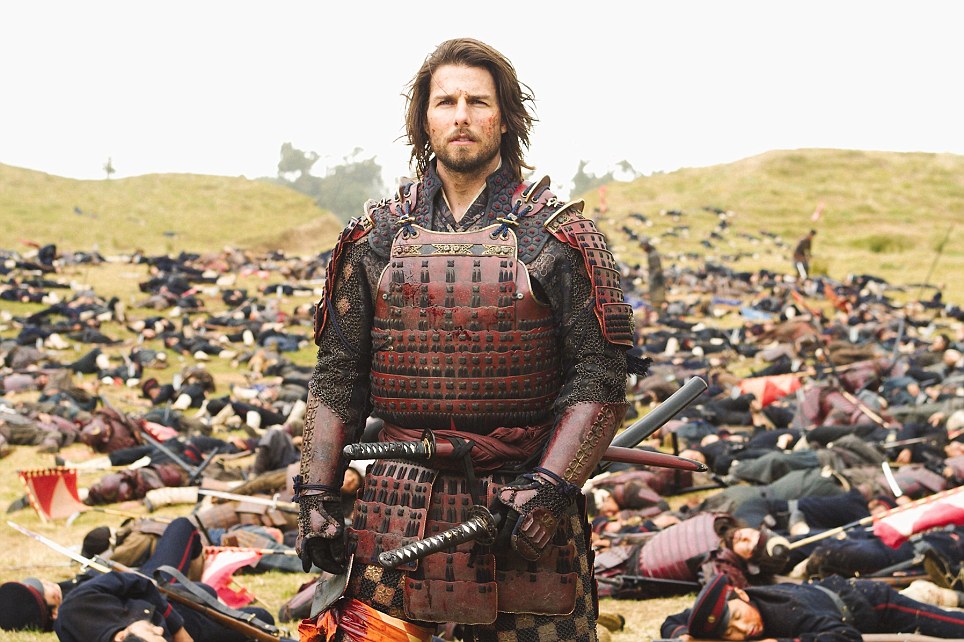
One of the many downsides of Hollywood’s virtual extinction of big-budget historical epics is that the great composers of new generations have been denied the opportunity to create more lavish and expansive orchestral scores, the kind of which these are made for and that have resulted in some of the best film music of all time (just think of Miklós Rózsa’s work in “Ben Hur” or Maurice Jarre’s in “Lawrence of Arabia”).
Based on the few times Zimmer has been given the chance to score these kinds of pictures, one can only imagine the heights he would have achieved if these films were made at the same pace as comic book movies. “The Last Samurai” score is a vivid piece of operatic emotions, featuring Zimmer’s typically incredible bombast for action (as in the tracks “Spectres in the Fog” and “The Way of the Sword”) but also quieter themes and motifs that showcase his often untapped sensibility for delicacy (the best examples being “A Way of Life” and “A Small Measure of Peace,” still two of his most popular cues ever).
9. Man of Steel (2013)
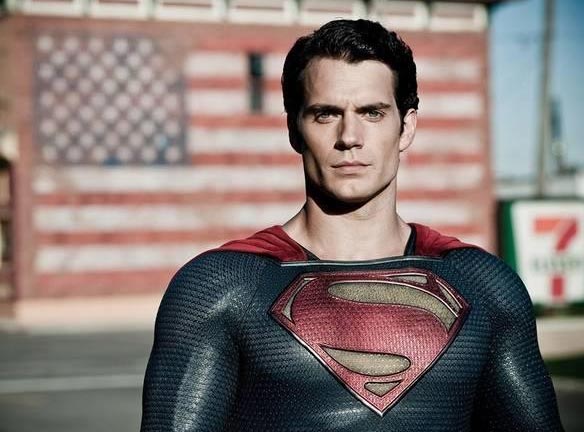
An unfortunate constant in Zimmer’s career is that his scores are often better than the movies to which they belong: take, for instance, “The Da Vinci Code,” a spectacularly stupid film that features one of the composer’s greatest cues, “Chevaliers De Sangreal.”
There is no better example of that, though, than “Man of Steel,” a tragically misguided cinematic vision of Superman that is elevated by wall-to-wall exceptional music. Fresh off his intensely idiosyncratic work in the Dark Knight trilogy, Zimmer was a natural choice for Warner’s new gritty take on an iconic DC character. But if his Batman scores were, much like the movies themselves, more cerebral and propulsive, the “Man of Steel” score is one of the most emotionally charged compositions of his entire body of work: from those opening piano notes in “What Will Do When You’re Not Saving The World?” to the constant angelic chorus, Zimmer is directly responsible for much of the movie’s emotional core.
But not only that, the music still retains that classic fist-pumping Zimmer quality, making phenomenal use of percussion instruments, aligned with strings and electronic flourishes that, put together, are enough to ignite anyone’s adrenal gland – a combination especially prevalent in the Zod cues, which amount to some of the best villain music of the decade.